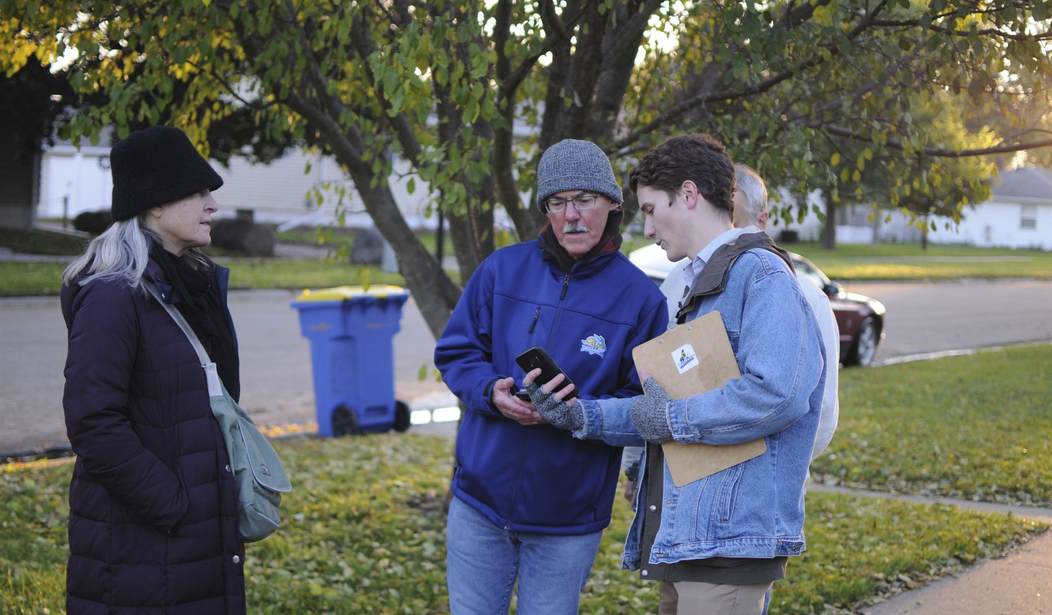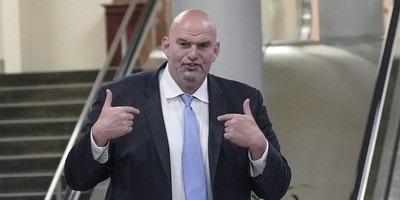Our upcoming biennial exercise of democracy is not just a matter of choosing between the crooked liar and the racist thief. Aside from filling any number of federal, state and local offices, there will also be ballot measures whereby the electorate may decide issues of public policy.
This latter area is commonly called direct democracy. But for the men and women in the ballot initiative arena, “direct” hardly seems the proper adjective.
Placing an initiative — that is, a citizen-initiated measure — onto the ballot begins with drafting the new statute or constitutional amendment and ends with turning in tens of thousands of voter signatures on petitions in small states, or hundreds of thousands to over a million signatures in larger ones.
Then comes the election campaign.
Does “direct” mean “long and arduous”?
No.
But state legislators, seizing every chance they get to make qualifying a ballot issue difficult and expensive, imbue the term with a somewhat nuanced meaning.
Nevertheless, voters will decide 167 statewide ballot measures this cycle, according to Ballotpedia.com. While most of those issues are referred to the ballot by state legislatures (89), many are indeed initiated by citizens via petition drives (68).
South Dakota has five measures before voters in this Tuesday’s election, with four dealing in part or whole with their state’s ballot initiative process. Of the four, two were placed on the ballot via citizen initiative (though one of the initiatives was pursued by legislators) and two through legislative referral.
Recommended
Initiated Measure 24 would ban financial contributions to state ballot measures from non-state residents, and from organizations formed outside of the state, and — get this — from any entity, even though formed in South Dakota, that “is not filed as an entity with the secretary of state for the four years preceding.”
This might rightly be dubbed the “Turn 2018 South Dakota into 1963 Mississippi Act.” Yes, its bar on “outside influences” employs the same logic Southern racists used in the 1960s to counter the agitation of the Freedom Riders. But the last group that would be banned from participating financially is any in-state group that is, heaven forbid, new — and thereby would not have been filed with the State of South Dakota four years ago.
In other words, let’s block any change to the current status quo.
While Measure 24 is technically an initiative, the chief proponent is the epitome of the Insider — in this case, a Republican — namely Mark Mickelson, Speaker of the South Dakota House of Representatives.
The issue of shutting off new in-state and all out-of-state funding has brought folks together in opposition from both left and right, calling the approach “unconstitutional.”
The three additional measures impacting direct democracy are all constitutional amendments. The first is Constitutional Amendment W, the child of 2016’s Measure 22. That earlier measure was a successful initiative statute that established an ethics commission, created a publicly funded campaign finance program and toughened lobbying laws and campaign finance restrictions. But soon after being narrowly passed by voters at the polls, the legislature repealed it.
Amendment W makes the statutory provisions passed in 2016 as Measure 22, and then repealed, into constitutional provisions — meaning the legislature cannot simply repeal them. Not without getting voter approval.
The amendment also adds, Ballotpedia.com explains, “provisions prohibiting the legislature from amending or repealing citizen initiatives without voter approval and requiring voter approval for changes to the state's initiative and referendum process.”
While I strongly support the changes Amendment W makes to the state’s initiative process, I oppose the restrictive limits it otherwise places on campaign finance.
Constitutional Amendment X would change the vote threshold to enact a ballot measure from a simple majority of those voting to “at least 55 percent” of all those voting on the issue. Such a supermajority if often defended as a way to “protect” our state constitutions. But from whom? Ourselves?
First, our rights are already secured via the federal Constitution. Second, a supermajority allows big-moneyed interests to spend lavishly to raise all sorts of negatives and then to win even when a majority rejects their arguments. A supermajority allows a minority of voters to block reform — 45.0001% to be precise.
Last, but not least, is South Dakota’s Constitutional Amendment Z. This is both the most sensible and the most dangerous measure. It is sensible, because legislation or a ballot issue should be considered in such a way that legislators or voters do not have to vote for things they do not want to enact in order to enact what they do desire.
However, courts have been so partisan and arbitrary in deciding whether an issue is a single subject or multi-subject, that a single subject requirement can be a way to turn the state’s judiciary into a goalie for the political establishment, ruling that anything they oppose politically is a too complex multi-subject issue.
In their paper, “Aggressive Enforcement of the Single Subject Rule,” John Matsusaka, a law professor at University of Southern California, and Richard Hasen, a professor at UC-Irvine School of Law, notes “that the definition of a ‘subject’ is infinitely malleable” and investigated whether when “judges attempt to enforce the single-subject rule aggressively, their decisions will be based on their personal views rather than neutral principles. . . . The evidence suggests . . . [that] aggressive enforcement decisions [on single subject issues] are likely to driven by the political preferences of judges.”
Tuesday will mark another day of decision between the forces of Trump and the Republicans versus the forces of Pelosi and Schumer and the Democrats. But it will also be an opportunity for voters to speak more emphatically on key issues via the direct democracy of ballot measures.
The powers that be in South Dakota especially, but elsewhere too, want voters’ voices muted. Vote No at full volume.

























Join the conversation as a VIP Member